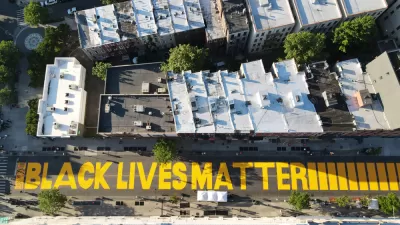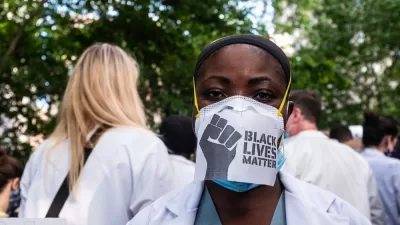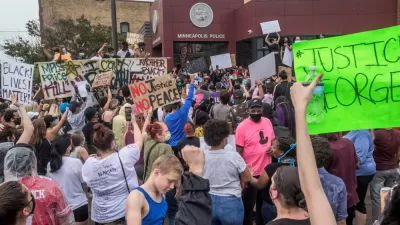Nic Esposito calls for an "anti-racist reframe" of urbanism to address the attitudes and policies that have perpetuated racist systems and upheld capitalism at all costs.

When first encountering the term "urbanism," Nic Esposito went to work to uncover the implications of the word. In Esposito's reading, the term implies that "by identifying as an urbanist, you somehow know what’s good for other communities which you are not a part of. This is the exact mindset that drives white supremacy and has driven flawed city planning policy, such as urban renewal and broken windows policing."
Esposito noticed the ties between capitalist priorities, racial injustice, and the work of urbanists and asked, "What if urbanism itself is perpetuating systemic racism?"
In the past, urbanists have favored a mindset that elevates the commercial corridor, placing the highest value on infrastructure that can help turn a profit, says Esposito. The truth of the matter is that not every community can afford to support such a district and, furthermore, not every community wants one.
Urbanists and urban planners need to reconceptualize their work in the context of recent Black Lives Matter and anti-police brutality protests, what Esposito calls an "anti-racist reframe." "If urbanists are able to influence policy and political decisions on the city level, then they owe it to our entire community to completely reevaluate what urbanism is and how its brand of intellectualism, policy and design really just puts a nice aesthetic on a racist system."
FULL STORY: Is urbanism a fantasy of racialized capitalism?

Maui's Vacation Rental Debate Turns Ugly
Verbal attacks, misinformation campaigns and fistfights plague a high-stakes debate to convert thousands of vacation rentals into long-term housing.

Planetizen Federal Action Tracker
A weekly monitor of how Trump’s orders and actions are impacting planners and planning in America.

In Urban Planning, AI Prompting Could be the New Design Thinking
Creativity has long been key to great urban design. What if we see AI as our new creative partner?

Pedestrian Deaths Drop, Remain Twice as High as in 2009
Fatalities declined by 4 percent in 2024, but the U.S. is still nowhere close to ‘Vision Zero.’

King County Supportive Housing Program Offers Hope for Unhoused Residents
The county is taking a ‘Housing First’ approach that prioritizes getting people into housing, then offering wraparound supportive services.

Researchers Use AI to Get Clearer Picture of US Housing
Analysts are using artificial intelligence to supercharge their research by allowing them to comb through data faster. Though these AI tools can be error prone, they save time and housing researchers are optimistic about the future.
Urban Design for Planners 1: Software Tools
This six-course series explores essential urban design concepts using open source software and equips planners with the tools they need to participate fully in the urban design process.
Planning for Universal Design
Learn the tools for implementing Universal Design in planning regulations.
planning NEXT
Appalachian Highlands Housing Partners
Mpact (founded as Rail~Volution)
City of Camden Redevelopment Agency
City of Astoria
City of Portland
City of Laramie





























